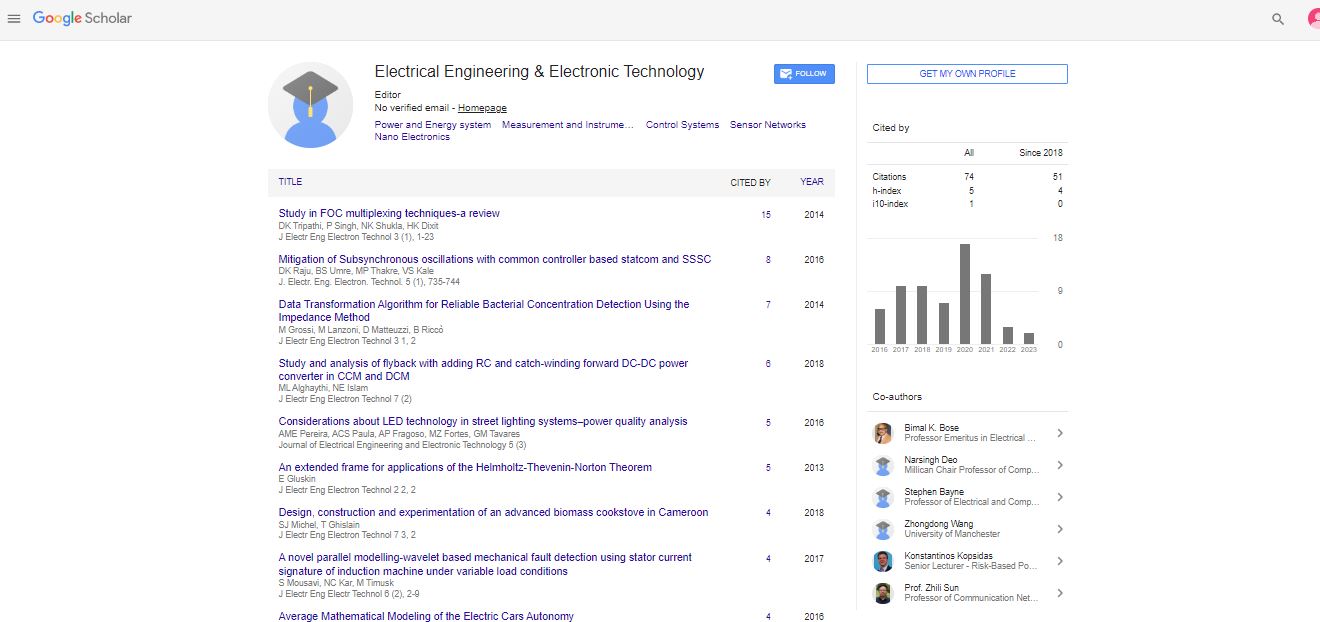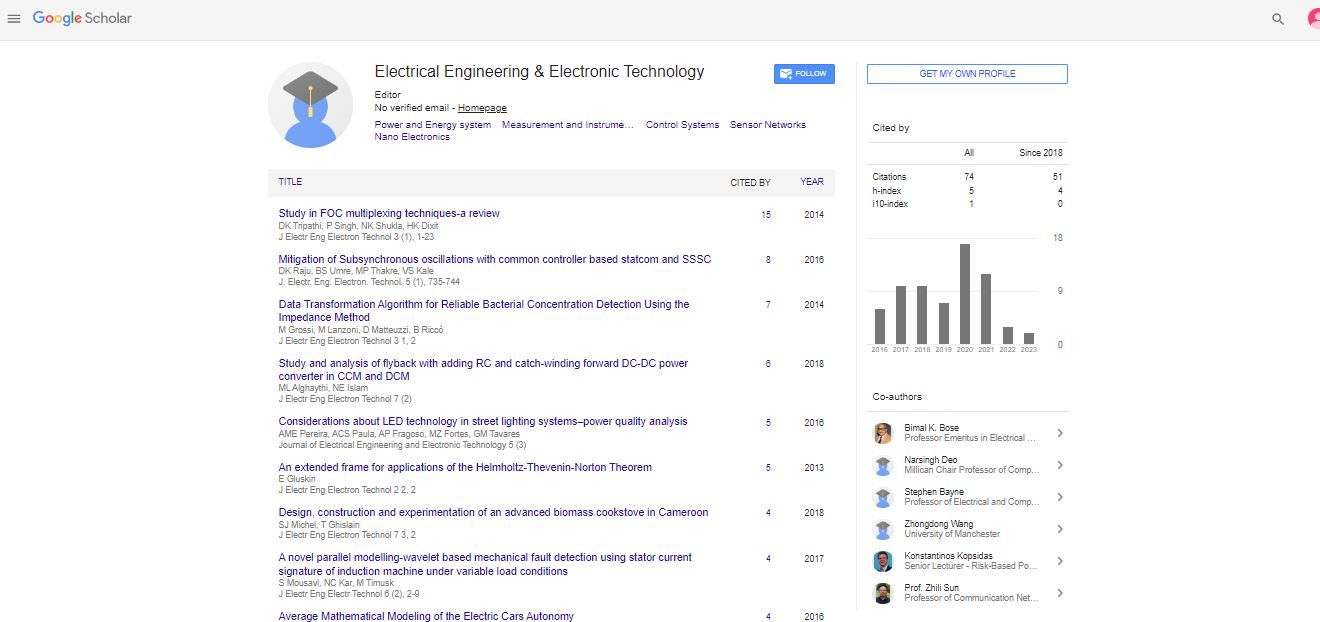Fluorescent Nanoprobes for Rapid Biomarker mRNA Detection at Single Cells
Y. Chen, G. Craig, I. J. H. Albandar, J. Yu and D. J. S. Birch
Centre for Molecular Nanometrology, Department of Physics, SUPA, University of Strathclyde,John Anderson Building, 107 Rottenrow, Glasgow G4 0NG, UK
Strathclyde Institute of Pharmacy and Biomedical Sciences, Royal College, University of Strat
: J Electr Eng Electron Technol
Abstract
Cancer is the second leading cuase of death globally and a tremendous burden on society. Despite the existence of screening and biopsies, the lack of sensitive and affordable tools for early diagnosis and prognosis of cancer remains key obstacles to reducing cancer mortality. We have developed a new nanoprobes for high throughput, sensitive cancer biomarker mRNA analysis at single cell level to facilitate rapid cancer detection. This nanoprobe is based on single strand DNA functionalized gold nanorods that register the target cancer biomarker mRNA in single cells via fluorescence intensity and lifetime, facilitating downstream tumour cell differentiation via flow cytometry. 1-5 Nanoprobes targeting cancer oncogenes, such as c-myc and sox2, have been designed and demonstrated with high binding specificity to target through fluorescence spectroscopy in solution phase and through flow cytometry in varies cell lines. Furthermore, the ability of the nanoprobe to detect cancer cells in co-culture with high concentration of non-cancer cells has been demonstrated. This proves the principle and demonstrates the potential of nanoprobes as a diagnostic tool against a range of mRNA biomarkers to detect tumour cells in liquid biopsies includig belly/pleural effusion and blood.
Biography
Dr. Chen is a Reader at Strathclyde University. She received a PhD in physics from Birmingham University in 2000. Her main research activities lie in the creation and characterization of nanoscale structures for their unique physical and chemical properties. Her recent research focuses on fluorescent nanoclusters, nanoprobes, plasmonic effects from noble metal nanoparticles, arrays and porous media, as well as nanoparticle-cell interaction and cytotoxicity. She works in multidisciplinary research in the interface of nanotechnology and healthcare aimed at utilizing nanostructures for enhanced biomedical imaging and sensing. Dr. Chen has 80 publications including five invited reviews, book chapters and has one patent application. She is a fellow of the Royal Microscopy Society, a member of the Institute of Physics and American Chemical Society. She served as an expert panel member for the European cooperation in Science and Technology – domain committee Materials, Physical and Nanosciences, chairs, invited speakers and member of organizing committee in international conferences and workshops.
E-mail: y.chen@strath.ac.uk
 Spanish
Spanish  Chinese
Chinese  Russian
Russian  German
German  French
French  Japanese
Japanese  Portuguese
Portuguese  Hindi
Hindi 
